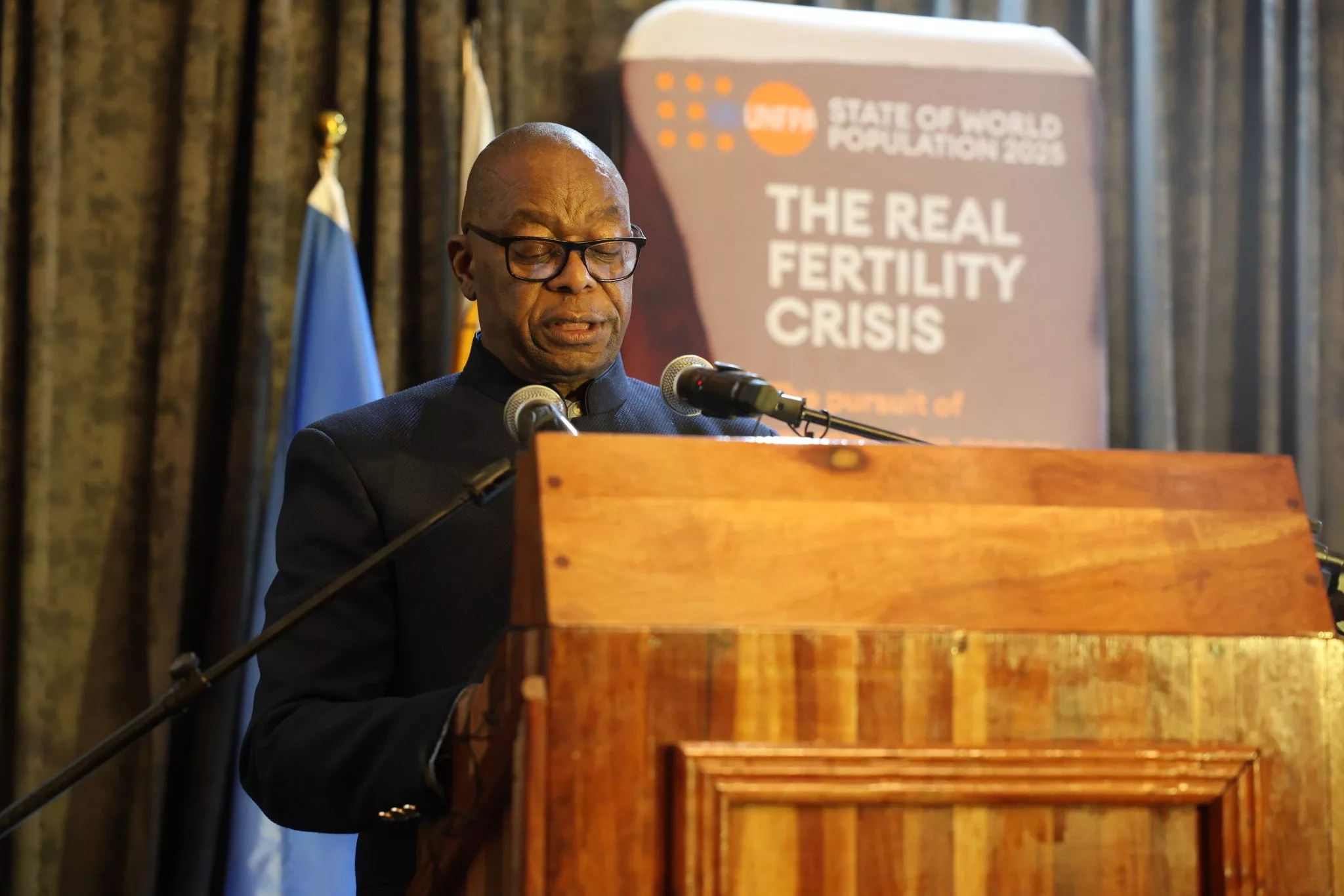|
Getting your Trinity Audio player ready...
|
Bangkok, Thailand – Against the vibrant backdrop of Bangkok’s bustling innovation district, the 3rd UNESCO Global Forum on the Ethics of Artificial Intelligence (AI) brought together hundreds of experts, policymakers, and advocates to shape a more inclusive, ethical digital future. Among the standout voices was Zimbabwe’s Dr. Tendai Zengeni, whose passionate advocacy for women in technology left a lasting impression.
Zimbabwe’s delegation to the high-level event was led by the Permanent Secretary in the Ministry of ICT, Dr. Beaullah Chirume, and Mr. Jonathan Gandari, Chief Director in the Ministry of Information, Publicity and Broadcasting Services. They were joined by Dr. Zengeni—UNESCO AI Expert Without Borders, a member of UNESCO’s Women for Ethical AI network, and a respected academic from Africa University in Mutare.
Dr. Zengeni, who also serves as Vice Board Chairperson at NetOne, is no stranger to the complexities of AI ethics. But at this forum, she took centre stage with a mission: to spotlight the persistent gender gap in AI and the lessons Zimbabwe can share with the world on bridging it.
Speaking Truth to Power on the Global Stage
As a featured speaker in the session Women Leaders at the Forefront of AI Policy and Technology, Dr. Zengeni tackled the critical question of why women remain underrepresented in AI-related fields, especially in Africa.
She described the structural barriers in Zimbabwe that continue to limit girls’ and women’s participation in AI and tech more broadly:
Stereotypes and Sociocultural Norms: AI and STEM are often framed as male domains, deterring girls from pursuing these fields early on.
Limited Access to Resources: Many girls lack digital devices, internet access, and coding training, which are essential foundations for AI skills.
Educational Pipeline Leakage: Even girls who excel in STEM subjects face financial pressures, family expectations, and a lack of female role models that lead to higher dropout rates.
Workplace Biases: Women who do enter tech often encounter discrimination, unequal pay, and limited advancement opportunities.
“These barriers are real and deeply entrenched,” Dr. Zengeni told the audience. “But Zimbabwe has also shown they are not insurmountable.”
Showcasing Zimbabwe’s Success Stories
Rather than dwell solely on challenges, Dr. Zengeni’s address also celebrated concrete Zimbabwean initiatives making a difference:
CodeGirls Zimbabwe trains girls from primary to tertiary levels in coding, robotics, and AI, breaking stereotypes from an early age.
SHETECH, spearheaded by Zimbabwe’s First Lady Dr. Auxillia Mnangagwa, offers scholarships and boot camps for girls in AI and related fields.
The University of Zimbabwe has created dedicated scholarships for women in computer science and partnered with industry to drive AI research.
The Ministry of ICT’s National ICT Policy explicitly promotes digital inclusion for women, with AI-focused training programs.
Female-led tech startups are pioneering AI solutions in agriculture and health, proving women can lead innovation.
Women in Tech ZW connects aspiring professionals to mentors across academia and industry, building support networks.
High-profile women in tech use conferences and media appearances to inspire and normalise female leadership in AI.
Key Lessons for the World
Dr. Zengeni argued that these Zimbabwean initiatives offer replicable lessons for other regions seeking to close the AI gender gap.
“We have learned that grassroots engagement is essential. When girls are exposed to coding and STEM at school, it chips away at harmful stereotypes,” she said.
She also highlighted the power of public-private partnerships—collaborations between universities, NGOs, and companies that expand opportunities and resources. And she underlined the importance of policy support, including government incentives like tax breaks for companies that prioritise gender equity in hiring and research funding.
A Global Call to Action
Concluding her remarks, Dr. Zengeni issued a call for coordinated, global efforts to support girls and women in AI:
Invest in education: Subsidised laptops, internet access, and coding camps can transform access for girls in low-income contexts.
Enforce gender equity: Policies and funding criteria must reward companies and research institutions that demonstrate inclusive practices.
Celebrate African women’s success stories: Visibility can inspire and challenge entrenched biases.
Zimbabwe’s Growing Influence in AI Policy
Dr. Zengeni’s contributions at the UNESCO forum reflect Zimbabwe’s growing role in global AI ethics discourse. The country’s delegation, led by Dr. Chirume and Mr. Gandari, demonstrated a commitment to ensuring that African perspectives and priorities—especially around gender equity—are central to international policy development.
The Bangkok forum itself was part of UNESCO’s ongoing effort to build a globally coordinated approach to the ethics of AI, ensuring technology develops in ways that are inclusive, fair, and respectful of human rights.
A Roadmap for Inclusive AI
Ultimately, Dr. Zengeni’s message was both hopeful and pragmatic: by investing in girls’ education, tackling workplace discrimination, and amplifying success stories, the global AI community can create pathways for more women to lead in shaping our shared technological future.
“We need to ensure that the AI revolution does not leave half the population behind,” she urged. “Zimbabwe’s experience shows what is possible when we commit to change.”
For many in Bangkok, it was a message that resonated—and one that will help guide the ethics of AI far beyond the conference hall.






